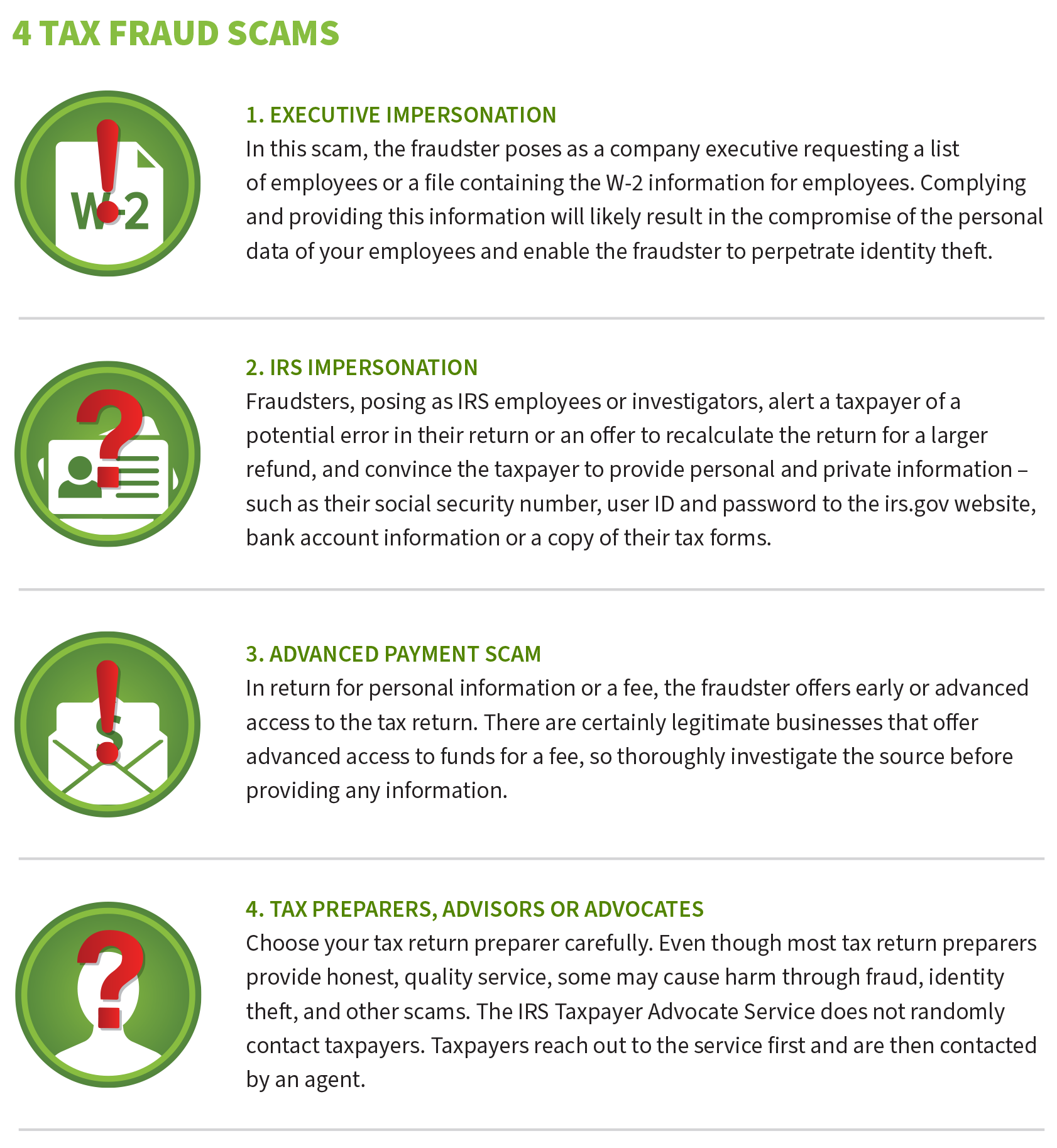Tax season is here. Millions of taxpayers, both consumers and businesses, are actively gathering their receipts, W-2s, and other documentation to complete their 2022 tax returns.
Unfortunately, it is also open season for fraudsters who will attempt to steal your information, pilfer your refund or impersonate the IRS to intervene in your filing process. Most of these tax fraud attempts begin with a phishing email, smishing text message or a vishing voice mail message. To help avoid these attempts to defraud, it is important to understand the potential threats in order to recognize them.
Just remember, “The IRS doesn’t initiate contact with taxpayers by email, text messages or social media channels to request personal or financial information.”
“That’s straight from the IRS website,” said Jeff Taylor, head of Commercial Fraud Forensics at Regions Bank. “If the IRS has a question regarding a return, it will contact you through regular mail.”
Take a few minutes to familiarize yourself with the most common tax fraud schemes.
 Download PDF of 4 common tax fraud scams.
Download PDF of 4 common tax fraud scams.
Now, you know what to look for. In the meantime, remember this:
The IRS Will Never:
- Call to demand immediate payment using a specific payment method, such as a prepaid debit card, gift card or wire transfer. Generally, the IRS will first mail a bill to any taxpayer who owes taxes.
- Threaten to immediately bring in local police or other law enforcement groups to have the taxpayer arrested for not paying.
- Demand that taxes be paid without giving taxpayers the opportunity to question or appeal the amount owed.
- Call unexpectedly about a tax refund.
- Leave prerecorded, urgent or threatening messages. In many variations of the phone scam, victims are told if they do not call back, a warrant will be issued for their arrest. Other verbal threats include law-enforcement agency intervention, deportation or revocation of licenses.
Taylor pointed out that criminals can fake or “spoof” caller ID numbers to appear to be anywhere in the country, including from an IRS office. This prevents taxpayers from being able to verify the true call number. Fraudsters also have spoofed local sheriff’s offices, departments of motor vehicles, federal agencies and others to convince taxpayers the call is legitimate.
3 Steps to Take if You Receive a Fraudulent Call:
- Record the number and then hang up the phone immediately.
- Report the call to TIGTA (U.S. Treasury Inspector General for Tax Administration) using their IRS Impersonation Scam Reporting form or by calling 800-366-4484.
- Report the number to [email protected] and be sure to put “IRS Phone Scam” in the subject line.
“The best way to avoid scams is to be fraud aware and stay educated on the potential fraud schemes being used today,” Taylor said. “Perpetrators of tax fraud typically prey on stress, confusion and fear. Criminals know that filing taxes can be complicated and a stressed individual may be more likely to fall for one of these scams. It adds up to a perfect environment for scammers.”
Related Fraud Articles From Doing More Today:
The information presented is general in nature and should not be considered, legal, accounting or tax advice. Regions reminds its customers that they should be vigilant about fraud and security and that they are responsible for taking action to protect their computer systems. Fraud prevention requires a continuous review of your policies and practices, as the threat evolves daily. There is no guarantee that all fraudulent transactions will be prevented or that related financial losses will not occur. Visit regions.com/STOPFRAUD or speak with your Banker for further information on how you can help prevent fraud.